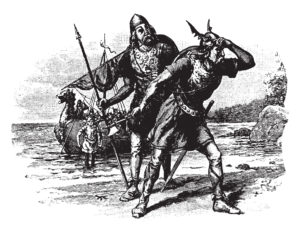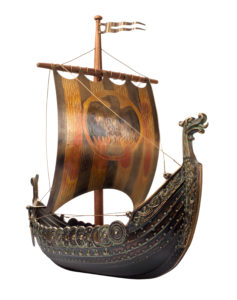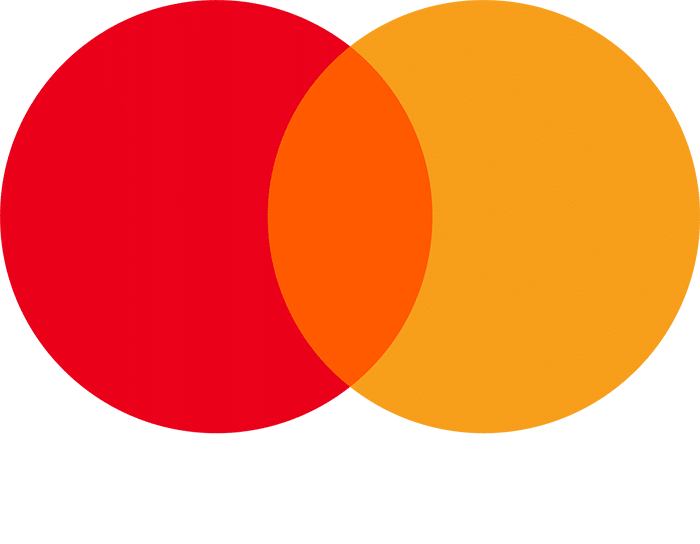Read the Following Selection
Read the following selection, or click on the play button below to listen aloud.
The Age of the Vikings
Vikings were known as vicious pirates who robbed and burned towns throughout Europe. But the Vikings were also incredibly successful sailors.
Pirate Raids

Norsemen illustration
The Vikings came from Denmark, Norway, and Sweden in the area of northern Europe known as Scandinavia. The word Viking comes from a language in this area and means “a pirate raid.” These raiders were also known as Northmen or Norsemen.
Starting in about the year 700, Vikings left their northern homes and sailed to other countries, such as Britain and Ireland. The Vikings became such fearsome raiders because they were looking for land. Many had been farmers, but the land where they lived was poor and difficult to farm. So they sailed off looking for better land to grab. Along the way, they also stole jewels, coins, and other treasure.

Viking dragonship
Knorrs
One important reason the Vikings were so successful is that they had incredibly fast ships. These knorrs, or longships, were long and narrow and could sail in very shallow water. That allowed the Vikings to sneak onto beaches and shores without their enemies detecting them. People never knew when the Norsemen would show up and destroy their village.
Viking ships were also called dragonships because they had giant wooden dragons carved at the front of the ship. The dragons terrified the Vikings’ enemies and added to the raiders’ fierce reputations.
Vikings in Canada

statue of Leif Erickson
Around the year 1000, a Viking named Leif Erickson (sometimes called “Leif the Lucky”) sailed across the ocean to what is now Newfoundland, in Canada. They were the first Europeans to set foot in North America. They set up a colony at a place that is now called L’Anse aux Meadows. (Anse is a French word that means cove.) The Vikings stayed here for a few years, then returned to Europe.
End of the Viking Age
The Viking age ended around 1066. By then, the fierce sailors had spread their culture across Europe with their raids and invasions. Today, many Europeans have Viking ancestors. The Vikings changed history in many other ways. For instance, many English words have their roots in Viking words, such as Thursday, outlaw, husband, egg, and knife!
Now, show what you know!
Complete some questions about the reading selection by clicking “Begin Questions” below.









